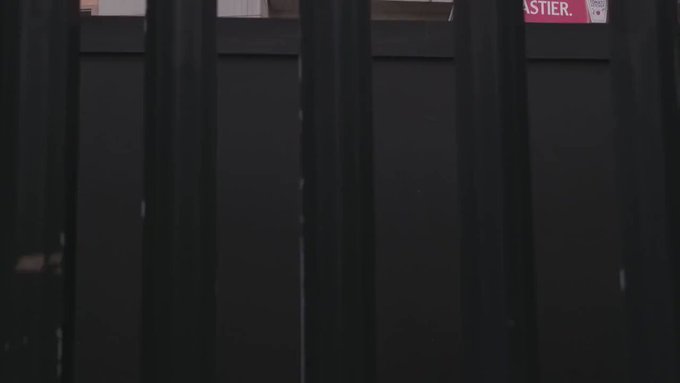City of Newcastle has completed the sale of its Roundhouse building to Crystalbrook Collection for 22 per cent above valuation and will offer the Fred Ash Building (FAB) for sale or lease later this year to capitalise on its location next to the city’s first five-star hotel.
A portion of the funds from the Roundhouse sale will go to fitting out the City’s new administration building on the corner of Stewart Avenue and Hunter Street. The tender for this contract will close on Tuesday 19 March.
Once awarded, the contract will allow for the entire southern tower and the top floor of the northern tower to be prepared for staff occupation before the end of the year. The second floor of the northern tower will be offered for lease.
The fit out has been estimated at $8.5 million with the actual price to be determined by the competitive tender process.
It includes the installation of a mobile Council Chamber on the ground floor, allowing the space to be used for a variety of community purposes when not being used for formal Council meetings, which occur twice a month.
The new City Administration Building will see the relocation of 425 staff spread across the 41-year-old Roundhouse, the 114-year-old FAB and the 90-year-old City Hall. The actual cost of relocating from the three buildings to the new single office location will be around $145,000.
The fit out will for the first time provide staff with kitchen and dining facilities. A rooftop terrace on the sixth floor, accessible to all staff, will create an outdoor work space as well as a dedicated lunch area. Part of the rooftop will be fitted for civic functions.
The rear of the sixth floor will house the office of the Lord Mayor and CEO and staff. The floor will also include a function/meeting room capable of hosting civic events, a kitchen for catering events, and meeting rooms accessible to all staff.
The new building will incorporate meeting rooms on each floor to encourage better communication and collaborative decision-making. Due to overcrowding in the City’s current staff buildings, entire floors have no dedicated meeting rooms.
The Stewart Avenue building is located across from the former Store site where construction is set to start later this year on a $200 million residential and commercial site as well as bus interchange. In addition to access to nearby public transport including train and light rail, several large spaces have been allocated within the building to encourage staff to ride to work.
The two buildings are the foundation of the City’s new CBD which has attracted more than half a billion dollars in development during the past two years. The NSW Government recently confirmed it had entered a 10-year agreement to be the anchor tenant at the new office development to be built on the site of the former Store building.
City of Newcastle CEO Jeremy Bath said the full fit out contract would be brought to Council in April for consideration.
“The estimated cost is $8.5 million, which is more than the $7 million we predicted 18 months ago. That’s an estimate which hopefully will come in lower due to the competitive tender process,” Mr Bath said.
“It’s worth also noting the Council made the decision late last year to relocate the Chamber to the new building, freeing up the existing one to be used by school and community groups. The Chamber in its current location at City Hall is closed to the public because of the need to protect the audio-visual equipment used to record and webcast Council meetings.
“The move to the Stewart Avenue building also provides City of Newcastle the opportunity to re-invent the way our staff work. We will be using an activity-based work model, which has been successfully introduced in many corporate offices in Sydney including Macquarie Bank, Blacktown Hospital, KPMG and PricewaterhouseCoopers.
“Staff workshops are currently underway to finalise the layout of each floor with more than 100 staff volunteering to be part of the process.
“The advice of the Commonwealth Bank and many others is that activity-based working improves staff communication, collaboration and interaction, which in turn delivers better decision making.
“The building will largely be free of traditional IT infrastructure, with the City last year commencing the process of relocating its servers to the Cloud. By relocating data and software applications to the Cloud, security is significantly enhanced.
“Critically, it also allows staff to access information anywhere and at any time. Under the IT model employed until recently, staff had to be seated at their allocated desk to access information and undertake their job.”
Mr Bath said the FAB was pulled from sale last year when it became apparent that the likely buyer of the Roundhouse was going to convert it to a five-star hotel.
“The decision was made to pull the sale of the second building late last year to ensure we captured the increase in property value that comes from being located next to a five-star hotel,” he said.
“The community’s response to the imminent arrival of a five-star hotel and the initial concept designs has been overwhelmingly positive. It’s wonderful to know our exit from the Roundhouse has created arguably the most significant opportunity in our city’s tourism industry since the closure of BHP more than 20 years ago.”

 Museum Director Julie Baird said the day offers the community a cheap and accessible opportunity to turn that tangible treasure into cash.
Museum Director Julie Baird said the day offers the community a cheap and accessible opportunity to turn that tangible treasure into cash.